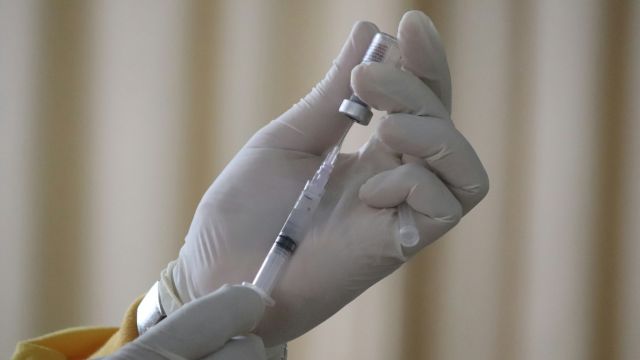Improving Outcomes in Gynaecological Cancer – Key Questions Answered

Did you attend our virtual event covering Women’s Health, Dermatology and Long Term Conditions from 21 – 23 November 2023? Dr Adeola Olaitan, Honorary Associate Professor at University College London and Honorary Consultant Gynaecological Oncologist at UCLH answers some of the questions about improving outcomes in gynaecological cancer that we didn’t have time to answer on the day.
Improving Outcomes in Gynaecological Cancer – Key Questions Answered
What is considered ‘abnormal’ bleeding in perimenopausal women?
Persistent unscheduled bleeding, particularly if it does not respond to medical management. Also please consider family history and personal risk factors.
Re: endometrial cancer. Can one have a normal USS but still have endometrial cancer?
Yes. The non-endometrioid endometrial cancers which are rarer are not associated with a thickened endometrium. Therefore women with persistent PMB should be referred to secondary care even if they have a normal USS.
What percentage of ovarian cancer will have normal ca125
50% of early ovarian cancer, 75% of advanced ovarian cancer
In women who have not been sexually active, is cervical screening still beneficial, given that their HPV risk is low?
HPV is transmitted by skin to skin contact and penetrative sex is not required for transmission. Therefore women who have had intimate skin to skin contact may still be eligible for screening.
Should we be routinely offering HPV vaccine in women < age 45 if they are found to have HPV on smear.
HPV vaccine can be given to anyone under the age of 45, regardless of HPV status. AS it is not a treatment vaccine, it does not confer any additional advantage to women who are HPV positive. However, it should be discussed with all unvaccinated women, particularly under 25s.
When investigating ovarian cancer do you advise both abdomen and transvaginal pelvic ultrasound, not just TVUSS?
I think an abdominal and pelvic USS will yield more information that TVUSS alone. The ovaries may not be enlarged but there might be an mental mass.
Would it be beneficial for a women with HPV negative smear to have HPV vaccine?
I think all women under 25, regardless of HPV status who have not previously been vaccinated, should be offered the vaccine.
How long does the effectiveness of the HPV vaccine last? Is it lifelong or 10 years?
It is a lifelong vaccine. There is no booster. The immunity does not appear to wane.
How can we counsel someone for cervical screen if they have never been sexually active or they had only one partner / how strongly should we be encouraging women to attend cervical screening who have never been sexually active?
If women have never been sexually active (including non-penetrative intimate skin to skin contact), they don’t need screening but can access it if they request it. The number of sexual partners is not relevant as 80% of the sexually active population will have HPV at some stage.
Do hysterectomised women with salpingo-oophorectomy for Dysfunctional Uterine Bleeding need Cervical Screening?
No, if their previous screening history is negative.
What is the cut off for endometrium thickness that would be suspicious in a premenopausal age?
Most USS centres use 4 or 5mm as the upper limit of normal.
Any advice/tips on how to distinguish an ectropian from cervical pathology? Can the vaccine be given to people who have missed their call up and are sexually active? Is there an age after which vaccine is not given?
The vaccine is licensed to the age of 45 and yes, can be offered to people who were not vaccinated, particularly the under 25s.
The distinction between an ectropion and malignancy is pattern recognition. An ectropion is usually symmetrical and even. If in doubt, do please refer.
